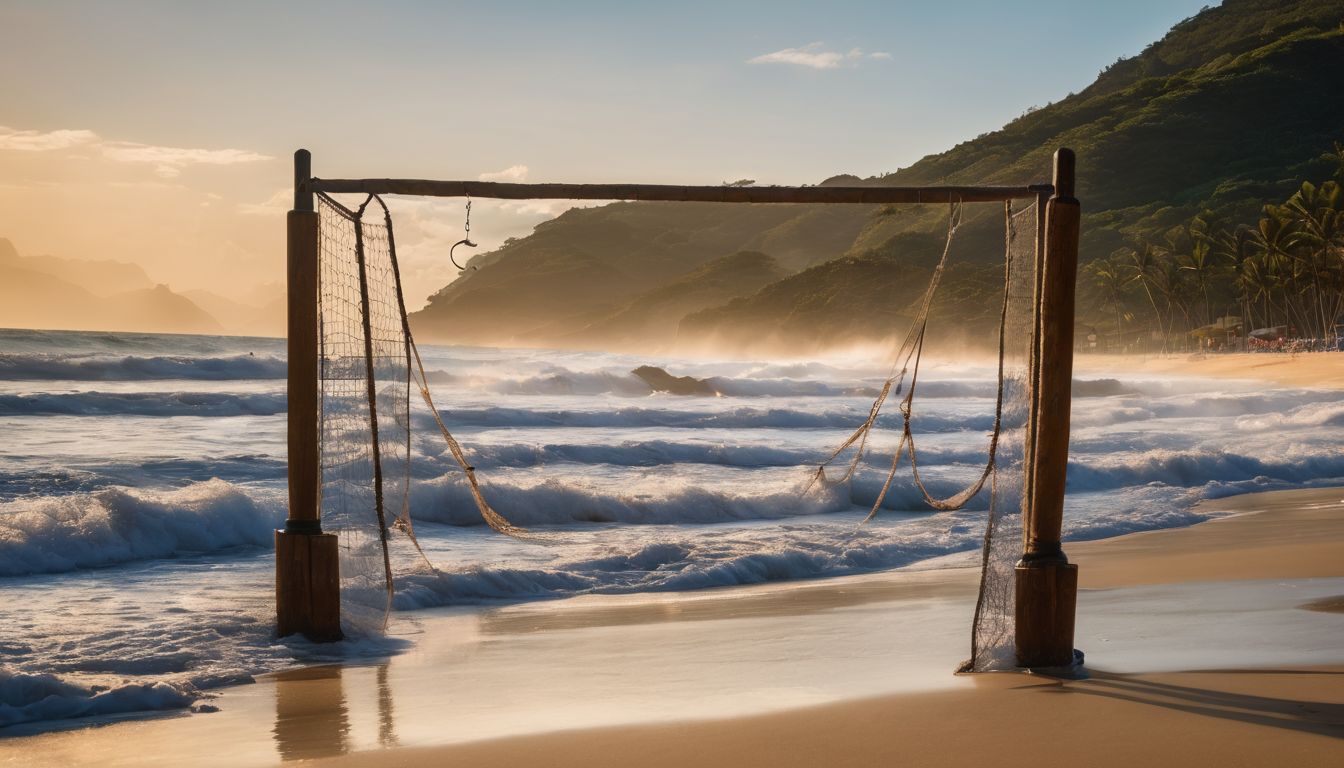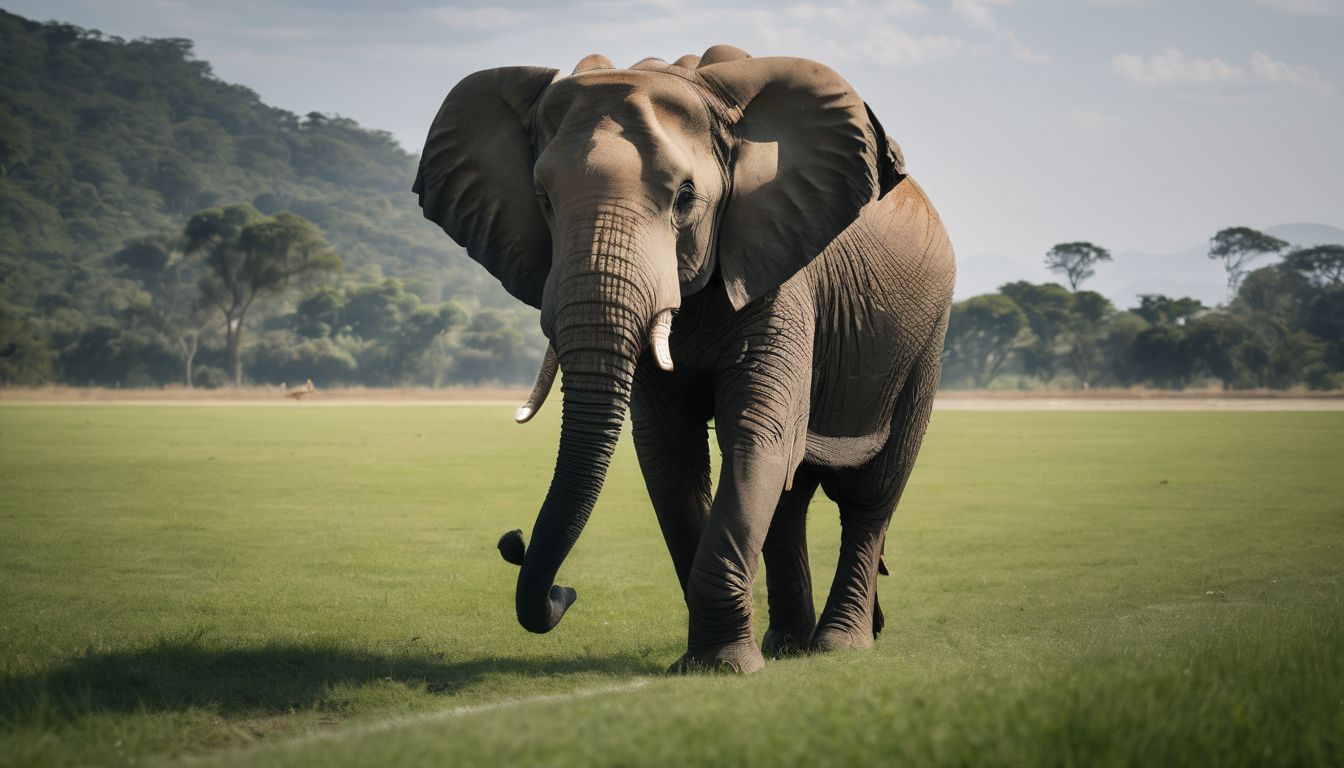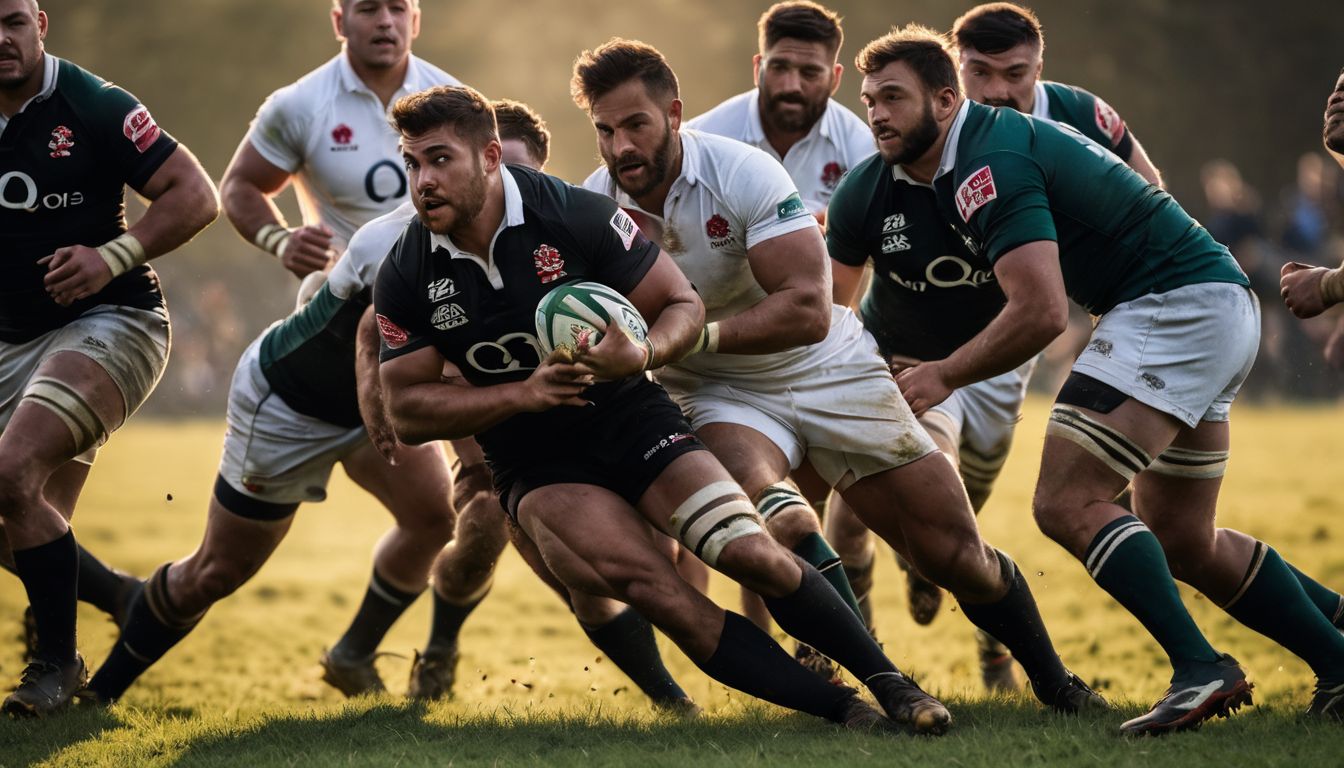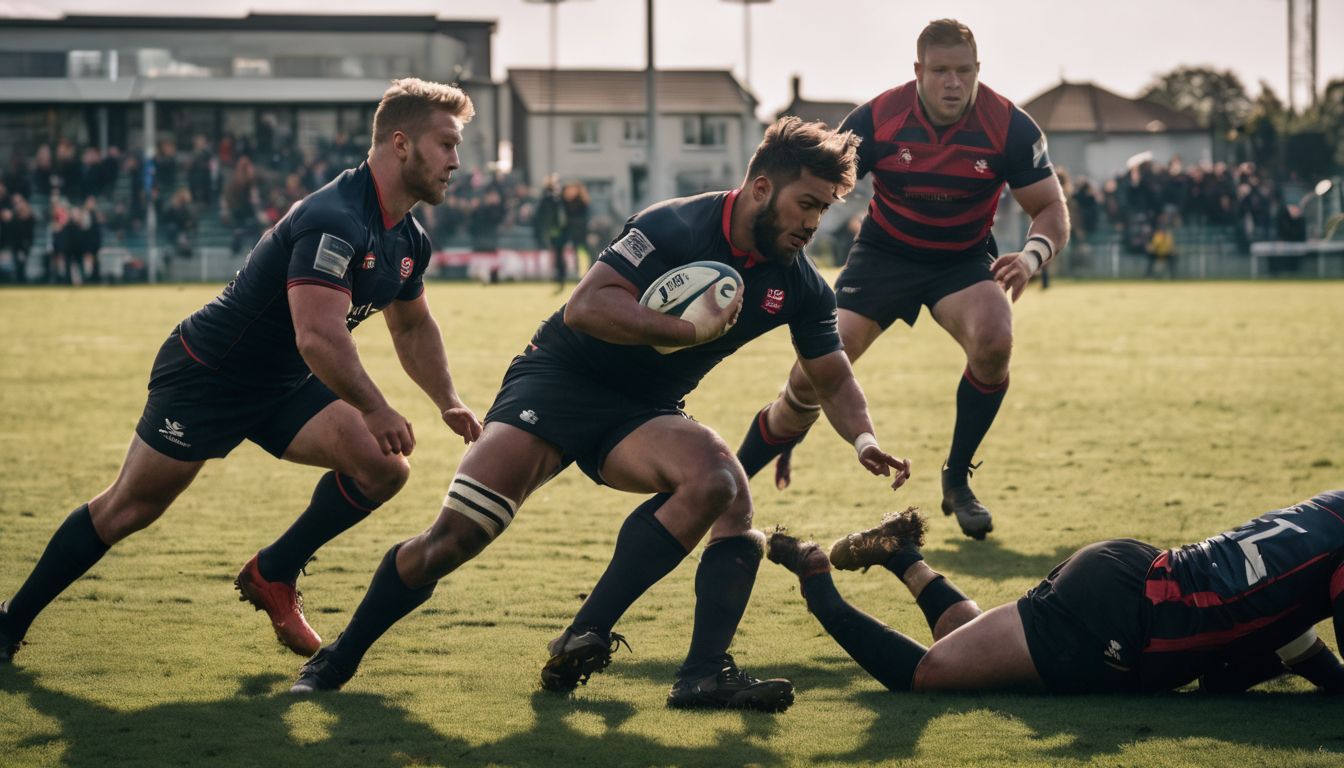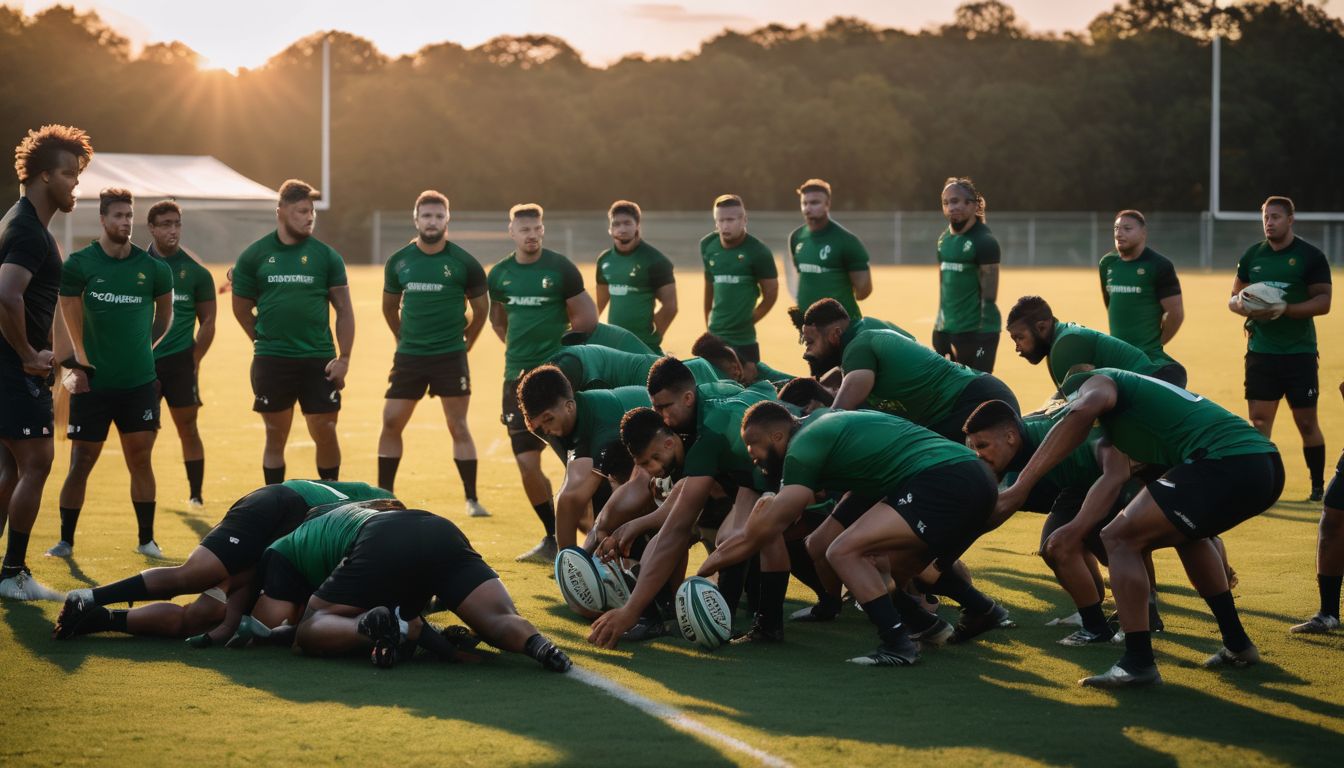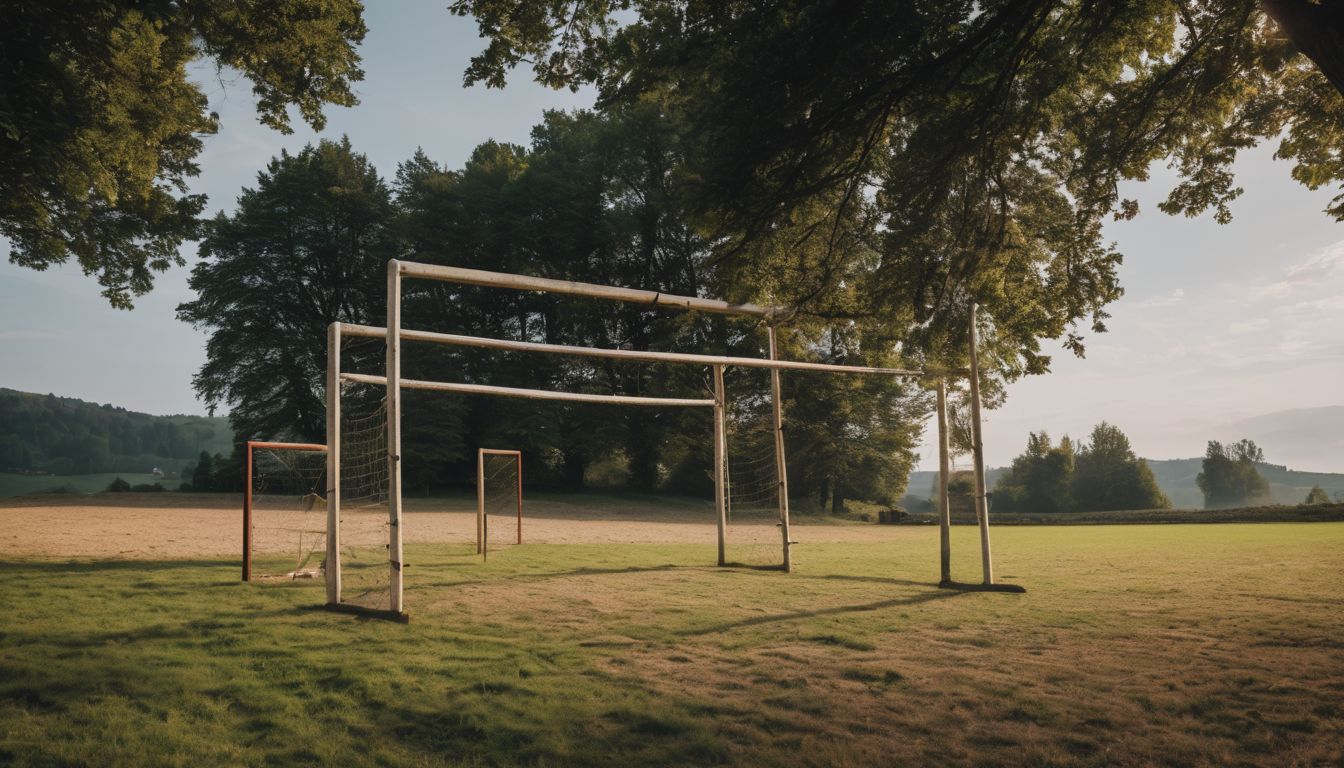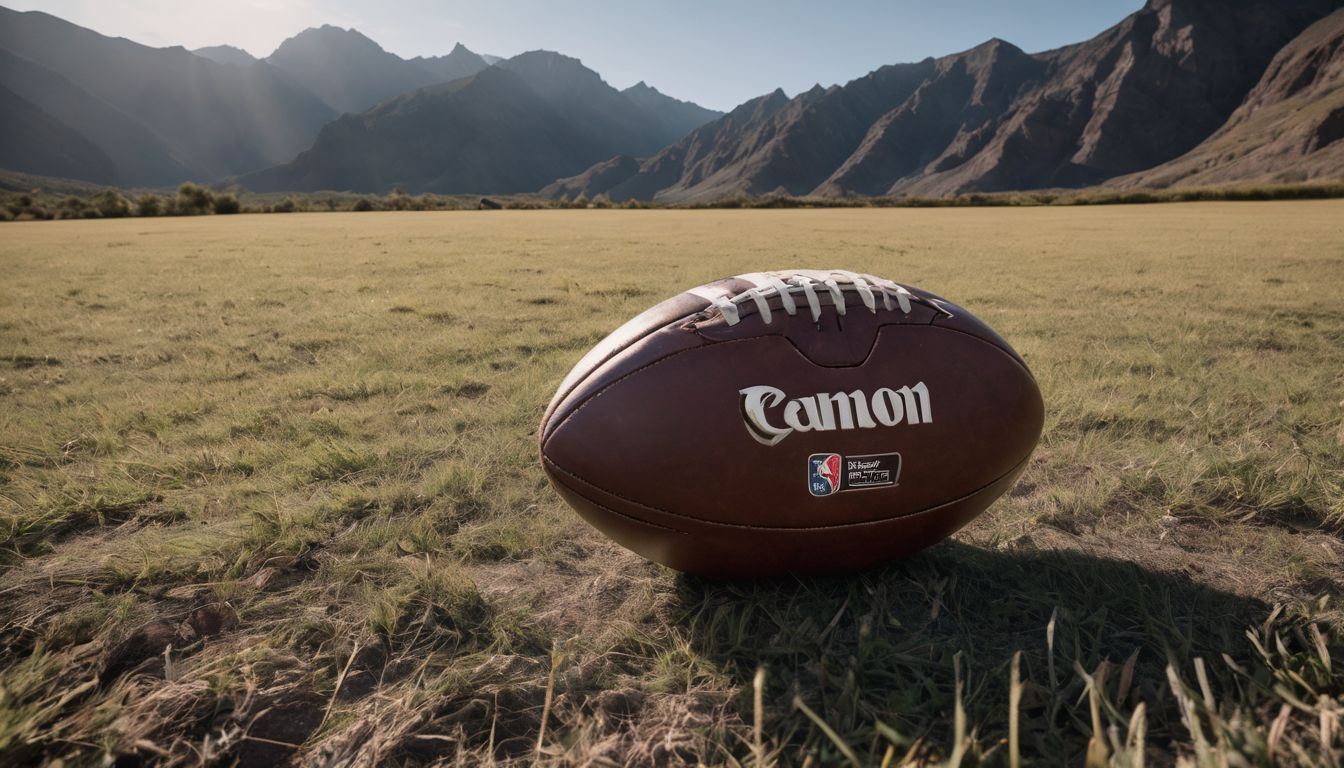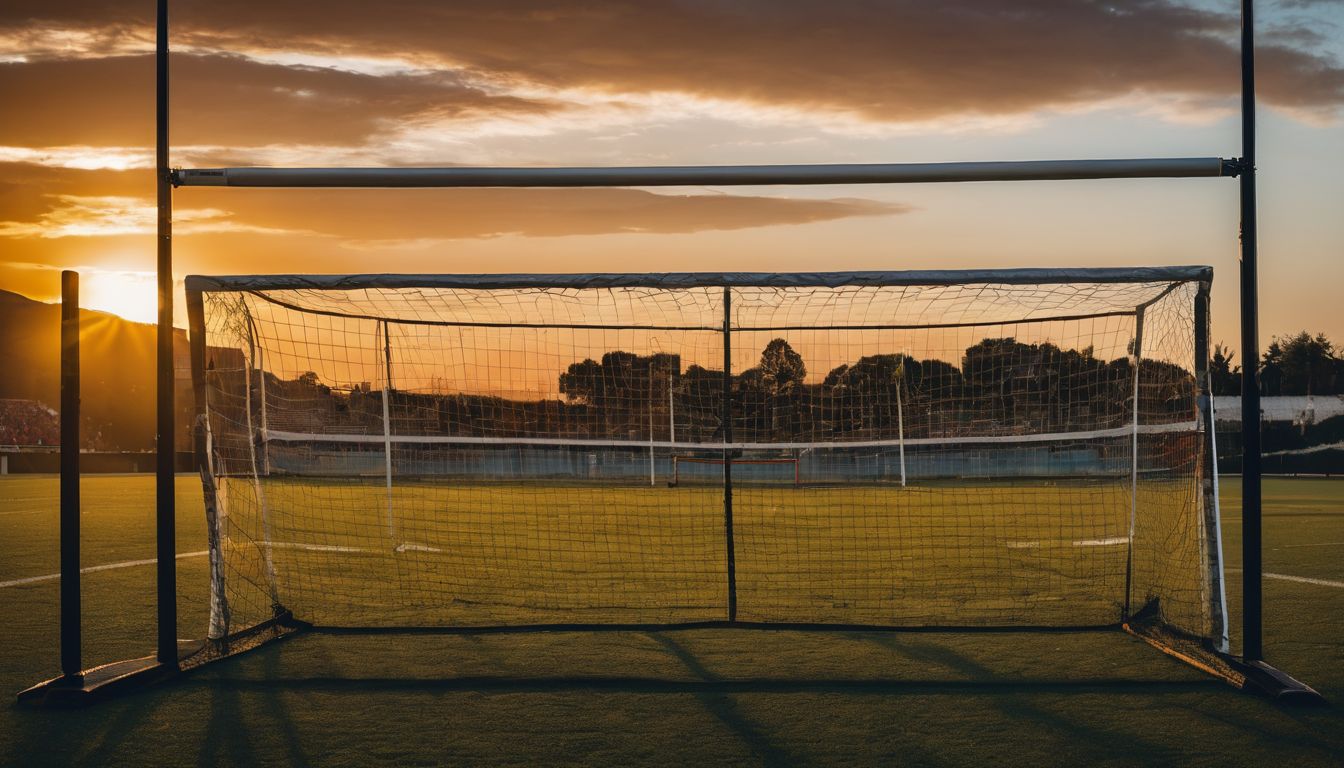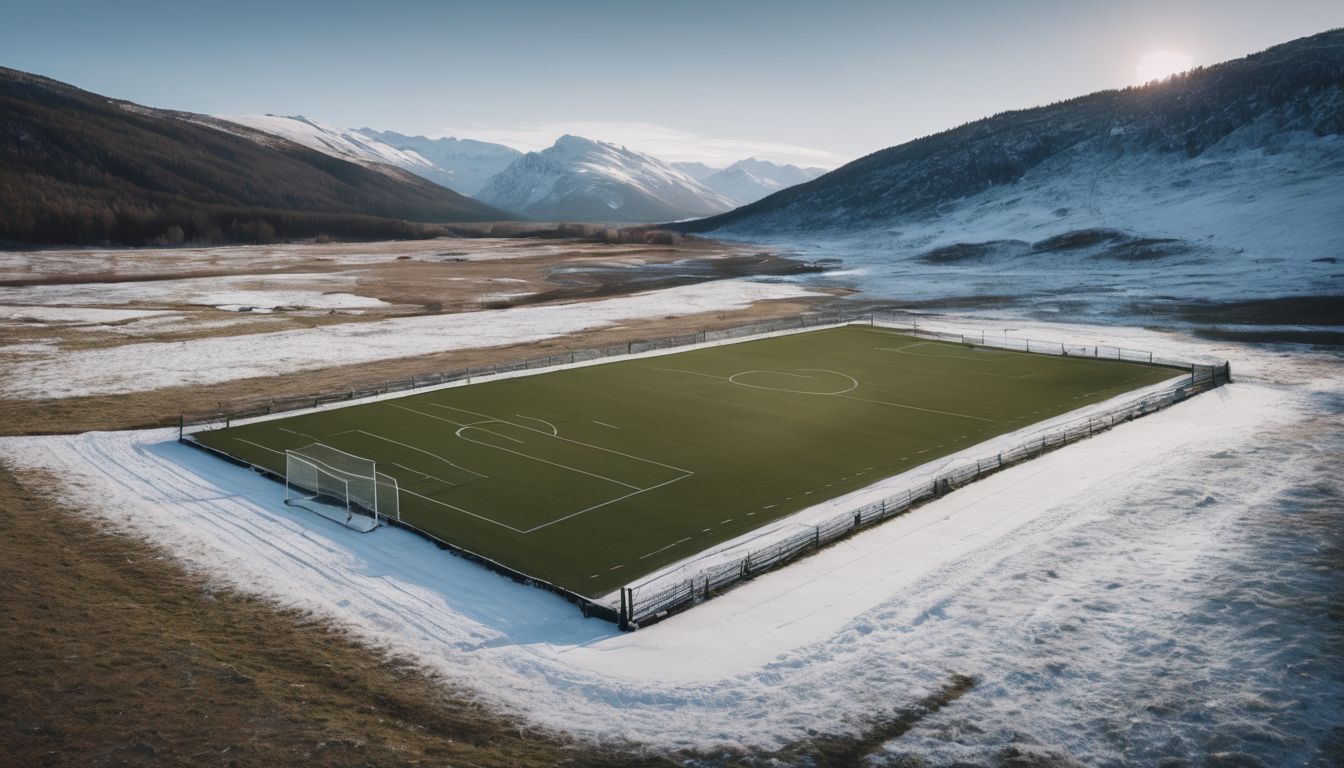Rugby might not be the first sport you associate with Brazil, but it’s tackling its way onto the scene. Known for their ‘Tupis’, Brazil is scoring big in a game where samba rhythm meets powerful scrum.
This blog post will dive into how rugby is flourishing in the land of football and why you should keep an eye on this thrilling transformation. Get ready to discover a side of Brazilian sport that’s all about tries and tackles!
Key Takeaways
- Charles Miller brought rugby to Brazil in the late 19th century, creating a foundation that mixes British roots and samba spirit.
- The first official rugby match in Brazil took place in 1926 between São Paulo Athletic Club and Santos Athletic Club.
- Brazilian Rugby Confederation, established by Charles Miller, governs the “Tupis,” the national team known for their strong scrum and unique style.
- Brazil’s rugby team gained international recognition with their performance at the 2019 Rugby World Cup.
- The Tupis are preparing for the next Rugby World Cup in 2021 and have the potential for success at the 2024 Olympics as rugby sevens become more popular.
The Rise of Rugby in Brazil
Influenced by British immigrants, rugby in Brazil has seen a steady rise since its early recorded matches. The sport has gained popularity and is now known for its unique samba flair and strong scrummaging style.
Influence of British immigrants
British immigrants have played a pivotal role in introducing rugby to Brazil. Charles Miller, an expatriate who returned from school in England, brought not just football but also the rugby ball to São Paulo and Rio de Janeiro.
His influence kick-started interest in the sport during the late 19th century. Rugby’s roots were further strengthened when these immigrants established one of Latin America’s earliest rugby organisations – The Brazilian Confederation of Rugby.
As British workers and expats mingled with locals, they shared their passion for the game, leading to its spread across universities and beyond. This infusion of British culture laid down the early foundations for rugby union in this South American nation, mixing samba flair with traditional scrummage techniques.
Over time, Brazilian players made this foreign sport their own by adding unique elements that reflected their vibrant sporting spirit.
Early recorded matches
Rugby has been a part of Brazilian sports culture since the 1920s, marked by the early recorded matches which showcased the country’s growing interest in this global sport. The first official match was played in 1926 between São Paulo Athletic Club and Santos Athletic Club, signifying the beginning of organised rugby in Brazil.
Since then, the sport has steadily gained popularity across universities and clubs nationwide. This growth is testament to Brazil’s receptiveness towards integrating rugby into its sporting identity, supported by a rich history that continues to influence players and fans alike.
The emergence of these early matches laid the foundation for what would become a thriving national rugby scene in Brazil, demonstrating an inherent passion for this physically demanding yet skilful game.
The Unique Style of Brazilian Rugby
Brazilian rugby incorporates the lively flair of samba music, adding an extra dimension to their playing style. Additionally, the Brazilian team has developed a strong and powerful scrum that sets them apart on the international stage.
Incorporating samba flair
Brazil’s rugby team has been infusing samba flair into the game, showcasing a unique blend of athleticism and rhythm. The national team’s style reflects the country’s love for music and dance, adding an energetic and expressive component to their gameplay.
This incorporation of samba flair sets Brazilian rugby apart, captivating fans with its vibrant and dynamic approach on the field.
Cultivating a strong scrum is another aspect that contributes to Brazil’s distinct style in rugby. The team combines agility and power with technical skill, creating a formidable force during matches.
Their ability to seamlessly integrate samba flair with strategic play makes them a compelling presence in international tournaments, elevating the sport’s appeal within Brazil and beyond.
Developing a strong scrum
The unique flair that Brazil brings to rugby is not just about samba; the national team has also been focusing on developing a strong scrum. The Brazilian Confederation of Rugby has been actively working on enhancing the team’s scrummaging prowess, adding a powerful dimension to their game.
With increasing recognition and popularity in the country, Brazil’s rugby union team has been participating in international tournaments and events, contributing to the growth and development of this aspect of the sport.
Brazil’s National Rugby Team
Known as the “Tupis,” Brazil’s national rugby team is controlled by the Brazilian Rugby Confederation and has been making waves in the international rugby scene. With their unique style and growing recognition, they are a team to watch out for in future tournaments.
Known as “Tupis”
The Brazil national rugby union team earned the nickname “Tupis,” reflecting the rich indigenous heritage of the country. The team, controlled by the Brazilian Rugby Confederation, has been making significant strides in international tournaments and events, contributing to the growth and development of rugby in Brazil.
With an increasing fan base and recognition on the global stage, the Tupis are showcasing their unique flair and style, adding a touch of Samba to their scrum technique.
Controlled by the Brazilian Rugby Confederation
Known as the “Tupis,” Brazil’s national rugby union team is under the governance of the Brazilian Rugby Confederation, ensuring regulation and development of the sport nationwide. The Brazilian Rugby Confederation, established in 1891 in Rio de Janeiro and São Paulo by Charles Miller, plays a significant role in fostering and coordinating rugby activities across the country.
With its centralised authority, the confederation has been crucial in promoting a structured approach to nurturing rugby talent and organising competitive events at various levels.
Additionally, it has provided support for Brazil’s participation in international tournaments, contributing to the growth and recognition of rugby within the nation.
Brazil’s Impact on the Rugby World
Brazil’s impact on the rugby world has been steadily growing, with increasing international recognition and a strong showing at the 2019 Rugby World Cup. The success of Brazil’s national team, known as the “Tupis,” is a testament to the country’s growing prowess in the sport.
Growing international recognition
Brazil’s rugby team has been gaining increasing international recognition and respect, marking a significant milestone in the country’s sporting achievements. The team’s participation in international tournaments and events has helped raise awareness of Brazilian rugby on the global stage.
With a unique blend of flair and skill, Brazil has become known for adding a samba style to their game, capturing the attention of rugby enthusiasts worldwide.
Brazil’s successful performance at the 2019 Rugby World Cup further solidified its growing reputation in the world of rugby. The team’s ability to showcase their distinctive playing style while competing against established powerhouses demonstrated their potential as an emerging force in international rugby.
Success at the 2019 Rugby World Cup
The Brazil national rugby union team made history at the 2019 Rugby World Cup by showcasing their strength and skill on the global stage. The Tupis demonstrated their tenacity and determination, earning respect from fans and fellow teams alike.
Despite facing tough opponents, the Brazilian team displayed exceptional sportsmanship and highlighted their growing presence in international rugby. With each game, they proved that they are a force to be reckoned with, leaving a lasting impression on the world of rugby.
Their performance at the 2019 Rugby World Cup not only solidified Brazil’s position as a rising force in the sport but also inspired a new generation of rugby enthusiasts across the country.
The Future of Rugby in Brazil
Brazil’s national rugby team is gearing up for the 2021 Rugby World Cup, with hopes of making a strong impact on the international stage. Additionally, there is potential for success at the 2024 Olympics as rugby sevens continues to grow in popularity in Brazil.
Preparing for the 2021 Rugby World Cup
- Intensive training and conditioning to enhance physical fitness and skills required for top-level competition.
- Playing practice matches against strong international opponents to assess their performance and identify areas for improvement.
- Analysing strategies of rival teams to develop effective game plans and tactical approaches.
- Collaborating with experienced coaches and support staff to refine techniques and optimise team dynamics.
Potential for success at the 2024 Olympics.
Brazil’s national rugby union team, known as the Tupis, has been making considerable progress in recent years. With their unique blend of samba flair and strong scrummaging ability, they are poised to make a significant impact at the 2024 Olympics.
The team’s growing international recognition and success at the 2019 Rugby World Cup have raised hopes for their potential success on the Olympic stage.
As rugby continues to gain popularity across Brazil, especially in universities, the national team is harnessing this momentum to prepare for future competitions. With support from the Brazilian Rugby Confederation and a dedicated coaching setup, Brazil’s rugby team is striving to showcase their prowess and unique style on the global stage at the upcoming 2024 Olympics.
Conclusion
In conclusion, the rise of rugby in Brazil is a testament to the country’s unwavering passion for sports. The unique blend of samba flair and scrummaging prowess has set Brazilian rugby apart on the international stage.
With growing recognition and success at global events, Brazil’s national team is poised for an exciting future on the world rugby scene. As preparations for the 2021 Rugby World Cup and potential participation in the 2024 Olympics unfold, Brazilian rugby continues to capture the imagination of fans worldwide.
FAQs
1. What is “Rugby in Brazil: Samba and Scrum”?
“Rugby in Brazil: Samba and Scrum” is about how the sport of rugby has grown in Brazil, mixing the country’s samba culture with the traditional game of scrum from rugby.
2. Has Rugby been played at the Olympic Games by Brazilians?
Yes, Brazilian rugby teams have taken part in Rugby Sevens at the Olympic Games, showcasing their skills on an international stage.
3. What makes Brazilian rugby different?
Brazilian flair adds a unique touch to rugby matches in Brazil, combining athletic prowess with vibrant local culture for an exciting twist on the game.
4. Do immigrants influence Rugby in Brazil?
Indeed, immigrants have had a significant impact on the development of rugby through coaching and sharing different playing styles that help grow this thrilling sport within Brazil.



